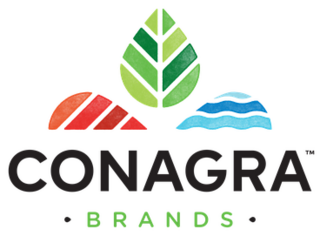 | |
| Company type | Private |
|---|---|
| Industry | Peanut processing |
| Founded | 1977 |
| Defunct | February 13, 2009 |
| Fate | Bankruptcy |
| Headquarters | , United States |
Key people |
|
| Products | Peanut butter, peanut paste, peanut meal, whole and chopped peanuts |
| Revenue | $25 million (2007) |
| Owner | Stewart Parnell |
Number of employees | 90 (2007) |
| Website | www.peanutcorp.com |
| Footnotes /references [1] | |
Peanut Corporation of America (PCA) was a peanut-processing business which is now defunct as a result of one of the most massive and lethal food-borne contamination events in U.S. history. [2]
Contents
PCA was founded in 1977 and initially run by Hugh Parnell, father of Stewart Parnell, with him and two other sons. The company was sold in 1994–1995 with the senior Parnell retiring, and with Stewart Parnell and others remaining with the new company as consultants. In 2000, PCA returned to Stewart Parnell via a private sale. Over this history, PCA came to operate processing facilities in Blakely, Georgia, Suffolk, Virginia, and Plainview, Texas, providing peanut and peanut butter products [3] primarily to the "institutional food" market (schools, prisons and nursing homes), to food manufacturers for use in cookies, snacks, ice cream, and dog treats, and to other markets.
By 2007, prior to closing its doors, PCA had grown to 90 employees and was doing $25 million in annual sales. It has been estimated to have been manufacturing roughly 2.5% of processed peanuts in the U.S. at that time.
PCA permanently halted its operations after it was found to be the source of a massive Salmonella outbreak in the U.S., during late 2008 and early 2009. The 2008 contamination followed a long history of food quality issues. There had been concerns about sanitation at the company since at least the mid-1980s, when the company was run by its founder, Stewart Parnell's father, Hugh Parnell. In addition, in the years just prior to its sale and Hugh Parnell's retirement, PCA was sued: by American Candy Company in 1990, and by Zachary Confections Inc. of Frankfort, Indiana in 1991, after discovery that PCA's peanut products exceeded the FDA tolerance level for aflatoxin, a mold-derived toxin common to peanuts. Moreover, as a result of the coming contamination event, investigations would show that some PCA processing was being done without FDA knowledge and oversight, and other food handling and processing areas had gone long periods without federal inspection.
In late 2008 and early 2009, as a result of the Salmonella contamination event, nine people died and at least 714 people fell ill, all from food poisoning after eating products containing contaminated peanuts. This contamination triggered the most extensive food recall in U.S. history up to that time, involving 46 states, more than 360 companies, and more than 3,900 different products manufactured using PCA ingredients. The contamination and recall had immediate major ramifications for the market of this set of farm products. On February 13, 2009, Peanut Corporation of America ceased all manufacturing and business operations, and filed for Chapter 7 bankruptcy liquidation. As of February 2009, a federal criminal investigation was continuing, and at least a dozen civil lawsuits had been filed. In September 2015, Stewart Parnell was sentenced to 28 years in federal prison for his role in the nationwide outbreak. Stewart's brother, Michael Parnell, was sentenced 20 years in prison.









